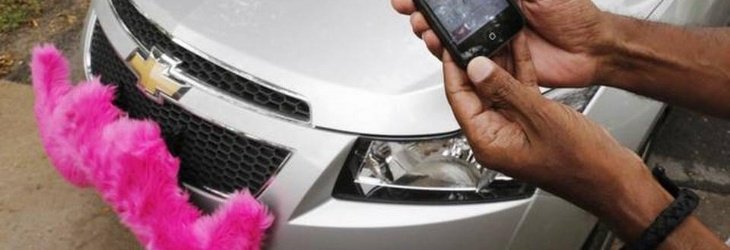Ridesharing has come to Ohio: make sure you’re prepared! Public transportation has become personal in Ohio, with the recent arrival of rideshare services such as Uber and Lyft in Columbus, Cincinnati, Cleveland and Toledo.
Ridesharing allows vehicle owners to transport passengers in their own cars for a “donation.” Drivers sign up with a service that charges a fee to connect passengers with drivers via a website or smartphone app. Passengers arrange rides and pay with a credit card using the app.
Vehicle sharing lets car owners rent their vehicles to others when the owner is not using the vehicle.
Both are enticing prospects to those looking for extra money and flexible hours, but there are insurance implications that could cause potentially significant financial problems.
Consumer Warning!
Ridesharing and vehicle sharing have potentially significant insurance implications for drivers unaware of the whole story. Learn the facts and examine your car insurance coverage so you can decide whether you want to participate. Here’s the fine print:
- Risks to passengers
Passengers should be aware of two issues. First, rideshare drivers aren’t currently subject to the regulations that taxi and livery services follow. That means drivers aren’t required to have city-regulated vehicle inspections or background checks, a public safety concern to many cities.Second, if a rideshare vehicle driver has no insurance, the passenger may be forced to hire an attorney and file a suit for injuries sustained because of the driver. These suits can be costly, and there’s no guarantee the settlement will be enforceable. In addition, the passenger may need to file a claim under his or her own auto insurance policy’s medical payments or uninsured motorists coverage.
- Drivers may not be covered
Ridesharing and vehicle sharing services are not covered by traditional personal auto insurance policies. Most policies have exclusions that apply when using a vehicle to transport people or property for a fee. Some insurance companies have added an additional endorsement to clarify that someone using a vehicle for ridesharing or renting is also excluded from coverage. Other insurance companies will simply refuse to renew your auto policy when they find out your car is involved in ridesharing.Ride share drivers need additional protection, so find out if your insurance company is willing to provide this coverage for you.
- The insurance provided by the rideshare service is not enough
Some rideshare services offer supplemental liability insurance to their drivers for coverage while they are operating as a rideshare driver. However, coverage is not provided for expenses incurred to repair damages to the vehicle. It also fails to cover other expenses that can result from an accident, such as medical bills. Ask the rideshare service for details about their insurance coverage. - What can go wrong?
A recent case illustrates that the stakes are high. A six-year-old girl was killed in a collision with a rideshare car in San Francisco. The driver said he was awaiting a fare at the time of the accident. Because the driver wasn’t transporting a passenger when the accident occurred, the rideshare company said he wasn’t covered by their policy – leaving the driver financially responsible. The case is still in litigation, but it’s estimated that damages could go as high as $20 million.
We can help
Ridesharing is a complex issue, and the story unfolds daily. Call us to review your personal auto policy and even your rideshare service’s policy. We can help identify gaps in coverage and tell you what options your insurance company offers.
